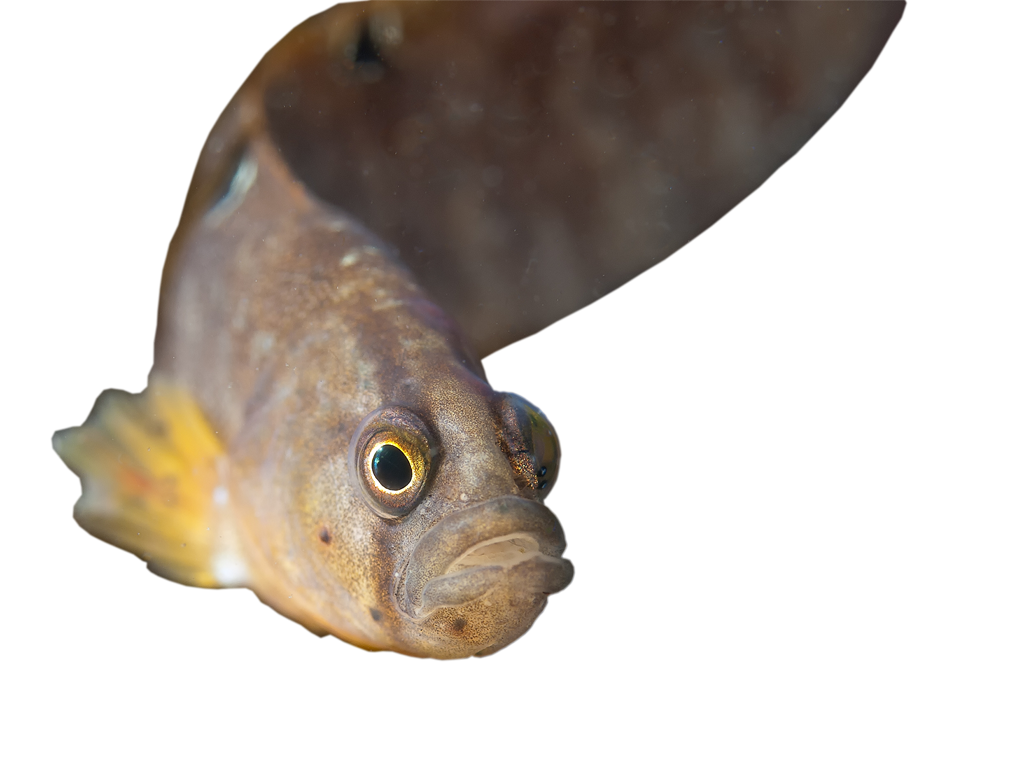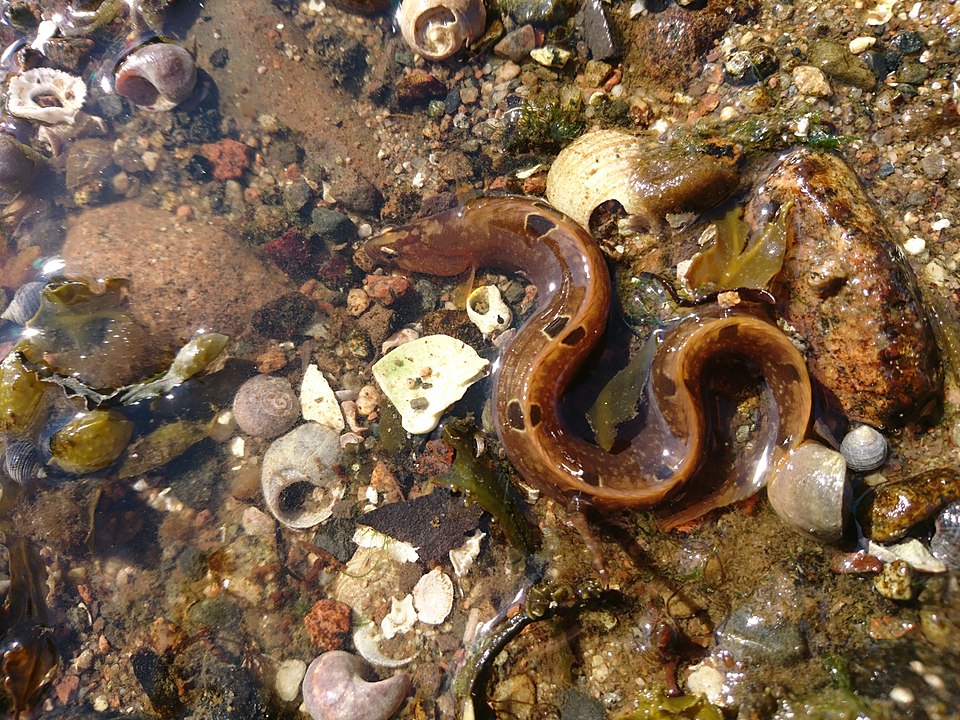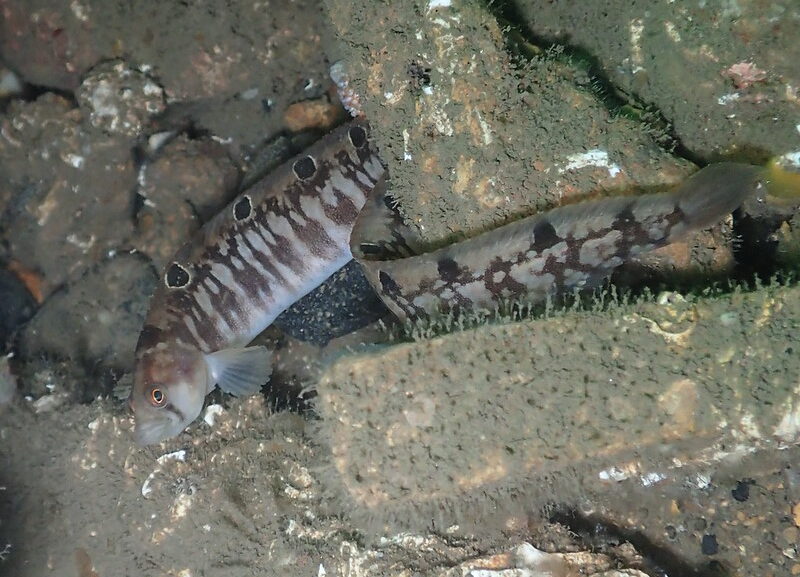Rock gunnel
Pholis gunnellus

Can breathe air under wet seaweed
The rock gunnel is active at night, and during the day it likes to hide under rocks and in empty mussel shells. In tidal areas, rock gunnel can sometimes be found under wet seaweed on the beach and in tide pools at low tide. They can survive for hours under the seaweed, and can even breathe air if needed! Many seabirds are fond of eating rock gunnel. The fish gets its Swedish name, tejstefisk, from the bird black guillemot, which is called ”tejst” in Bohuslän. The black guillemot is a keen consumer of rock gunnel.

Photo: Jack-Sewell-CC-BY
The body is covered in mucus
The rock gunnel hardly looks like any other fish in Swedish waters. The body is elongated like an eel, and flattened on the sides. Along the dorsal fin, there are several dark eye spots with lighter round rings around them. It has a serpentine-like way of swimming and lives in salt and brackish water. Its body is covered with a slime, which allows it to move very quickly if it suddenly needs to seek shelter. It can also change its body colour to blend in with the surroundings.

Photo: richie-rocket-CC-BY-ND
The male guards the eggs without eating
The rock gunnel usually spawns in winter. The male selects a nesting site in a rock cave or an open mussel shell and then attracts the female. The female lays between 1000 and 2000 eggs which she attaches to rocks around the nest site. The male then guards the eggs, sometimes together with the female, until they hatch. This can take between 40 and 60 days, and the male eats nothing during the time he is guarding.
Distribution in Sweden
The West Coast down to Öresund, and the Baltic Sea up to the Sea of Åland.
White marking = Distribution

Threat based on the Red List

Trade regulations
CITES: Not listed.